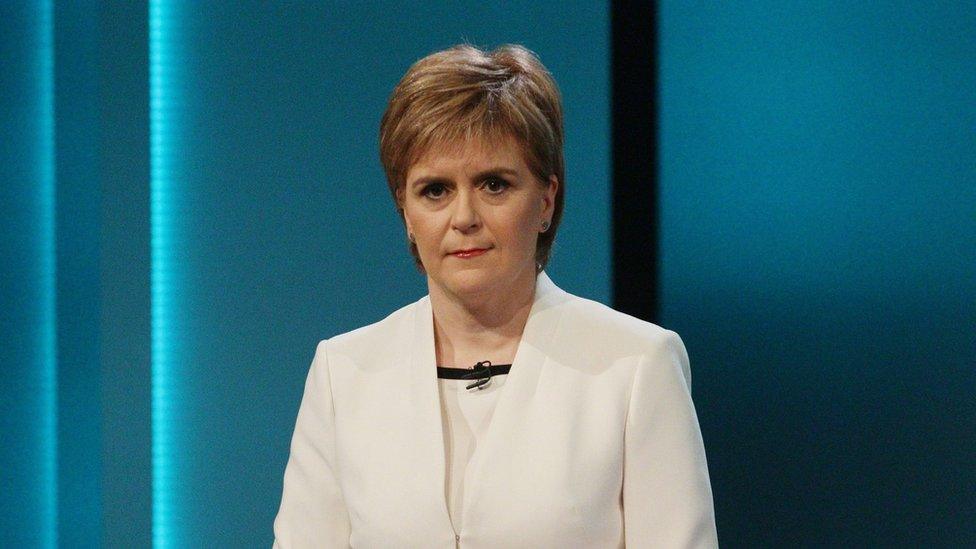EU debate dodges Holyrood purdah
- Published
Presiding officer Ken Macintosh told the chamber he had sought advice on the matter
It is trite - but nevertheless true - to say that politicians are not crucially important in this referendum.
They are not up for election. In any case, the future prospects of individual politicians and their parties matter far, far less than the key question.
Leaders come and leaders go. Parties wax and wane in popularity. There is a much, much bigger issue here.
Which is, of course, the choice facing the people a week today. Many people will listen to arguments and information advanced by political leaders.
But, more than ever before, it seems likely that they will make their own minds up, based upon a composite series of impressions, thoughts, conversations, prejudices and projections.
Think of it this way. If political guidance were to be regarded as the determining factor, then Remain would be winning out of the park.
Battle lines
They have on their side, among others: the Prime Minister and most members of the UK Cabinet; the leaders of the principal opposition parties at Westminster; the First Minister and the leaders of every party at Holyrood.
And the Leave side? They have UKIP; Boris Johnson, Michael Gove and other senior Tories; a few Labour MPs and MSPs; sundry other politicos.
Scarcely an even balance. Yet Leave currently appears to be winning. Why so? Some will have been swayed by the strength and volume of the Leave campaign.
Others will have been predisposed to dismiss the EU, requiring only a little encouragement and a sense of momentum. Others may dislike David Cameron.
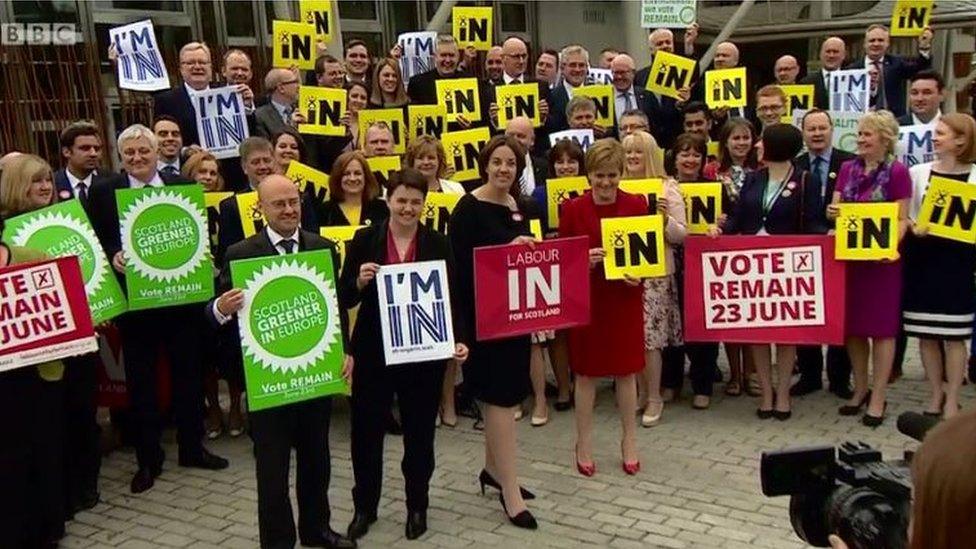
The Remain campaign has much more backing among MSPs at Holyrood
I think I have mentioned previously a reference to the earlier European referendum, that of 1975, in Roy Hattersley's splendid memoirs, Who Goes Home?
The author quotes Roy Jenkins to the effect that the Yes side were bound to win because they had all the big political names in their camp while the No side relied upon a handful from the Labour Left and the Tory Right.
That disparity may well have had an impact in 1975. That disparity is still present today. The UK and Scottish political leadership en masse still favours EU membership. Yet it would seem that the impact of that disparity is less salient.
Again, a range of factors may be at play here. Firstly, developments in the EU may have increased the underlying unease of the populace, which has now been brought to the surface. Secondly, the issue of immigration may have become completely intertwined with the EU, to the disadvantage of the Remain camp.
And, thirdly, there may simply be less fundamental respect for the guidance offered by political leaders. Folk may be less inclined to heed the advice of the powerful - and more disposed to ignore it.
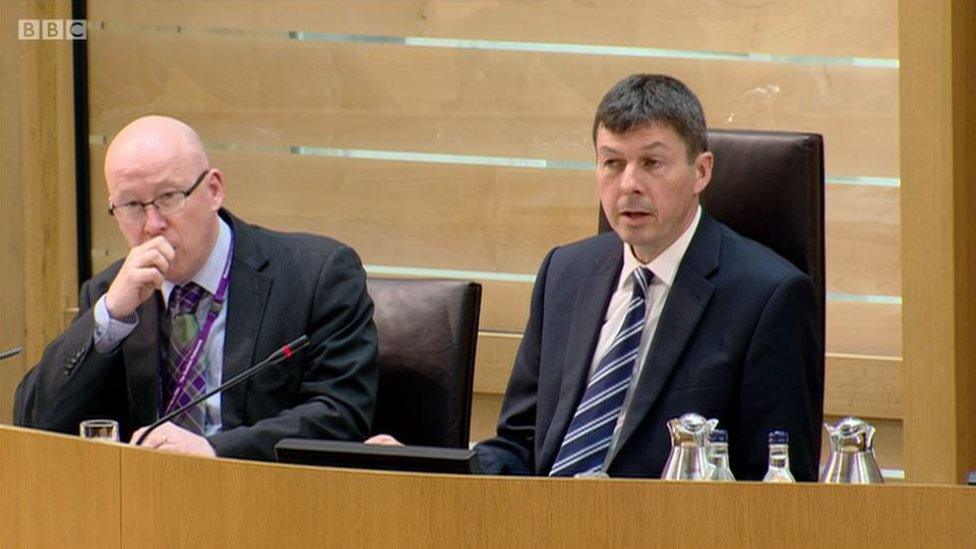
Ken Macintosh decided no rules had been broken in the Holyrood exchanges
To return to Holyrood. All the political leaders there back Remain. The parties - all the parties - demonstrated that fact by mustering for a joint photocall and sending speakers to a European Movement Remain event.
Partly, that reflects Scotland's apparent relative support for Remain - although, as I have noted earlier, I do not discern any exceptional zeal or enthusiasm for the EU among the Scottish people. Rather, it is, if anything, a caveated acceptance, on balance.
That disparity between Remain and Leave generated controversy at Holyrood today. Not over the substance - but over the issue of the EU being raised at all.
Parliamentary purdah
Like other public bodies, Parliament is in purdah. That means there should be no use of public funds in pursuit of either side in the EU referendum campaign.
It is up to the Presiding Officer to rule on such matters. To inform debate, he issued guidance in advance to all parties.
Among other points, that guidance notes: "In exercising judgement on whether to intervene, the Presiding Officer's main considerations will be whether the contribution could be considered to be an attempt to influence the voters in the referendum or could give rise to the perception that the proceedings were not fair or impartial as regards the referendum."
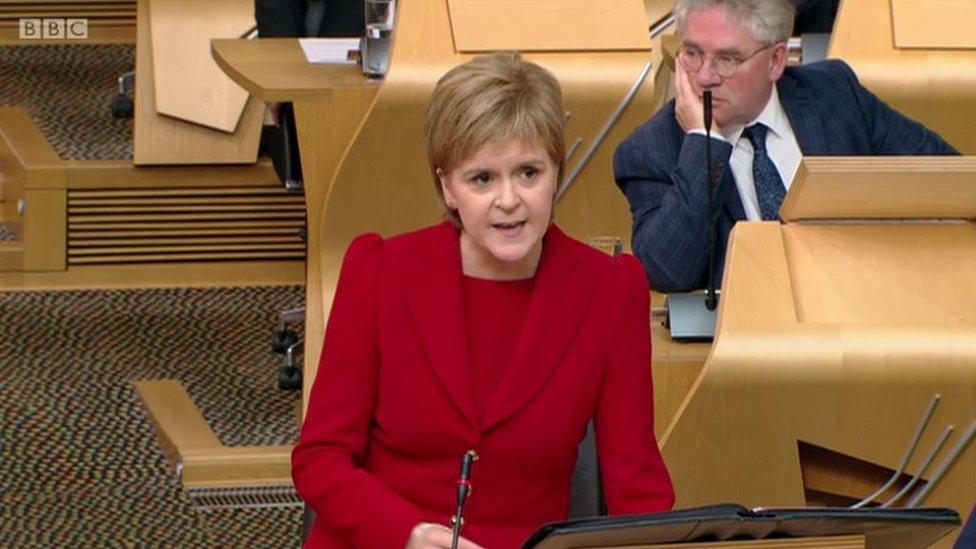
Nicola Sturgeon did not pass up a chance to make EU referendum arguments
In questioning the First Minister today, it is my impression that Labour's Kezia Dugdale, frustrated at purdah, sought deliberately and carefully to push these constraints to the limit.
She invited the FM to expatiate on the proclaimed advantages of the EU, including the single market. I understand she had signalled her intentions in advance to the FM's office.
It was possible, of course, that Ms Dugdale's comments and question would be ruled out of order. But, prepared for the prospect, Nicola Sturgeon responded by stressing the benefits, economic and otherwise, of Scotland's present involvement within the EU.
Neither mentioned the referendum explicitly, neither referred directly to the question in said plebiscite, neither directly advocated a particular choice in that vote.
So that's OK then. Certainly, Ken Macintosh, in the chair, thought so. The PO looked and sounded a little nervous as the brief exchange proceeded.
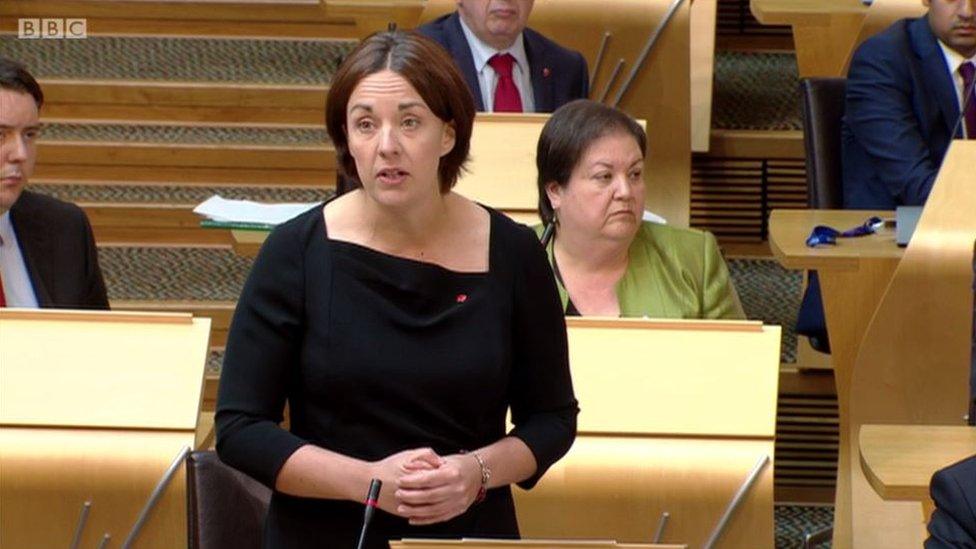
Kezia Dugdale seemed to set out to deliberately get around the purdah rules
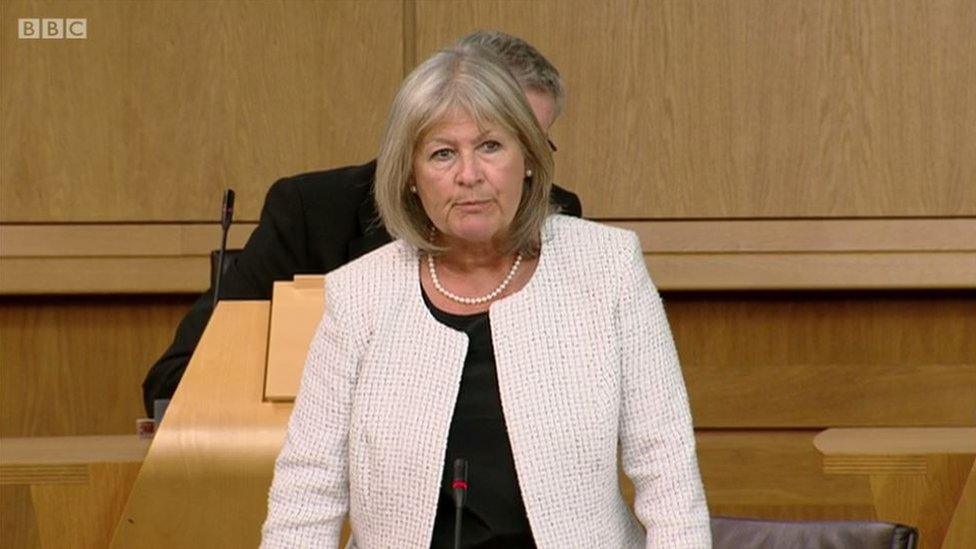
Brexiteer MSP Margaret Mitchell took the chance to make some EU arguments of her own
But he ruled later that his guidance had not been breached. The exchange had been in order. This was in response to a challenge from Margaret Mitchell, a Conservative MSP who advocates a Leave vote.
She took the chance to add a few choice comments of her own anent the disadvantages of EU membership, thus neatly providing balance. Just.
It might be thought germane for me to add that Ms Sturgeon sat smiling gently on the front bench as she was exonerated.
Certainly, she did not miss the opportunity afforded. As well as supporting the current advantages of the EU, she confirmed that her government was making contingency plans for a potential Leave vote.
And she said that every eventuality would require to be examined in the light of a Leave choice. Including, it was implied, a further independence referendum.
In search of clarity, I asked a Team Sturgeon staffer later whether the FM was indeed floating the prospect of indyref2. The reply? "You bet."
Does that mean that such a prospect would inevitably follow a Leave vote? It does not. In practice, Ms Sturgeon is saying no more than she has said previously - that the prospect would be on the table.
However, it is intriguing that she chose to emphasise it.
- Published16 June 2016
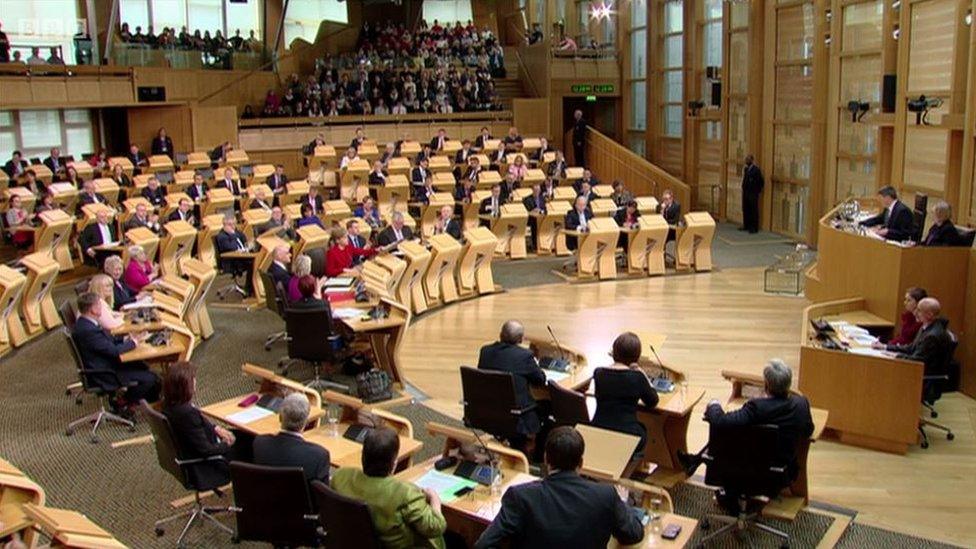
- Published17 June 2016
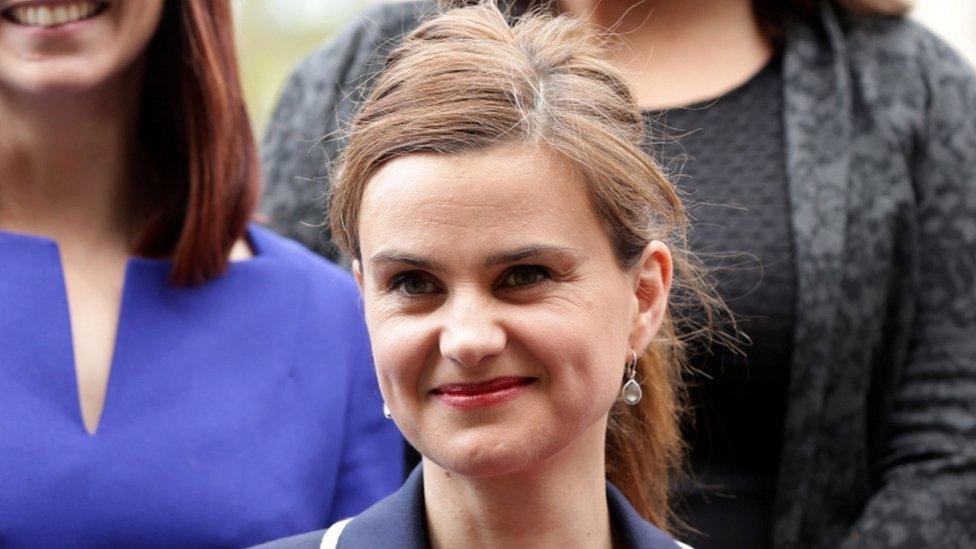
- Published15 June 2016
